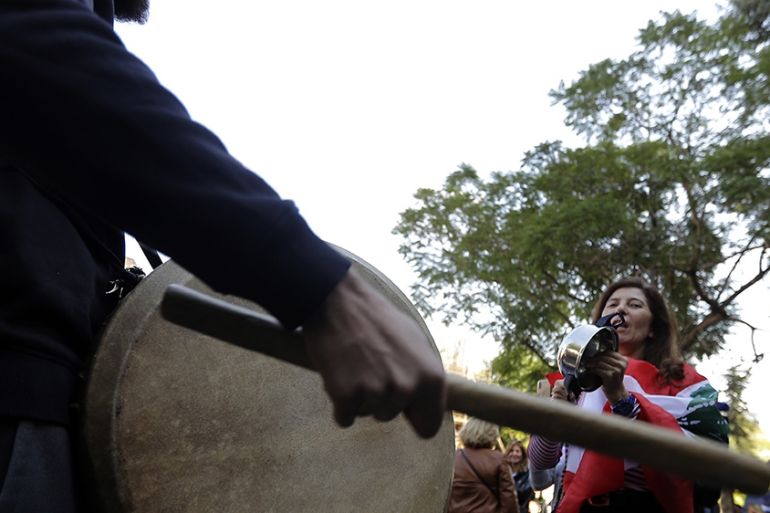As Lebanon talks to IMF, Fitch warns of possible debt default
Ratings agency also warns of further political unrest stemming from US dollar rationing to prioritise debt repayments.

Ratings agency Fitch cut Lebanon‘s credit rating for a third time in a year on Thursday, warning it now expects the crisis-hit country to restructure or default on its debt.
Fitch said its decision to chop the rating to CC from CCC reflected its view that a restructuring or default was now “probable owing to acute political uncertainty, de facto capital controls and damaged confidence in the banking sector”.
Keep reading
list of 3 itemsLebanon budget deficit ‘much bigger’ than expected, says minister
Megaphone: The voice of Lebanon’s uprising
That will deter capital flows vital to meeting the country’s financing needs, while the emergence of a parallel exchange rate and the failure of the central bank to fully service its foreign currency obligations also highlighted the strains, Fitch added.
“Indications of recession, together with restricted access to bank deposits and goods shortages magnify the risk of further social unrest. Rationing of U.S. dollars to prioritise repayment of government debt may become a more politically charged issue,” said Fitch.
Discontent with economic mismanagement and corruption in Lebanon exploded into nationwide protests starting in October. Demonstrators continue to take to the streets to demand an overhaul of the country’s political system to set it on the road to financial recovery.
Lebanon’s public debt burden, equivalent to about 150 of gross domestic product (GDP), is one of the heaviest in the world. Last year’s deficit was equal to about 11.5 percent of GDP, and economic growth rates have been weak for years.
Lebanon relies heavily on remittances for foreign exchange, but transfers of money from abroad have dried up, leading to a shortage of United States dollars that in turn has hammered the value of the Lebanese pound.
Banks have effectively imposed capital controls limiting the amount of dollars customers can withdraw or transfer out of the country.
As the crisis deepens, citizens are struggling to pay their bills and business are laying off workers and cutting salaries.
This week the country’s caretaker finance minister warned that there has been a sharp fall-off in government revenues as a result of Lebanon’s worst financial crisis since the 1975-90 civil war, which means this year’s deficit will also be much bigger than expected.
Fitch said rising dollarisation – where citizens exchange their money into US dollars – and the emergence of a parallel or black market exchange rate is also exerting growing pressure on the peg of the Lebanese pound to the US dollar, which has existed since 1997.
Soon after Fitch’s cut, the office of Lebanon’s caretaker prime minister Saad Hariri said he had discussed possible “technical assistance” with the International Monetary Fund and World Bank.
In a statement, Hariri’s office said he told World Bank President David Malpass and IMF head Kristalina Georgieva he was committed to preparing an urgent plan that could be implemented once a new government was formed.
The news saw Lebanon’s government bonds rally.